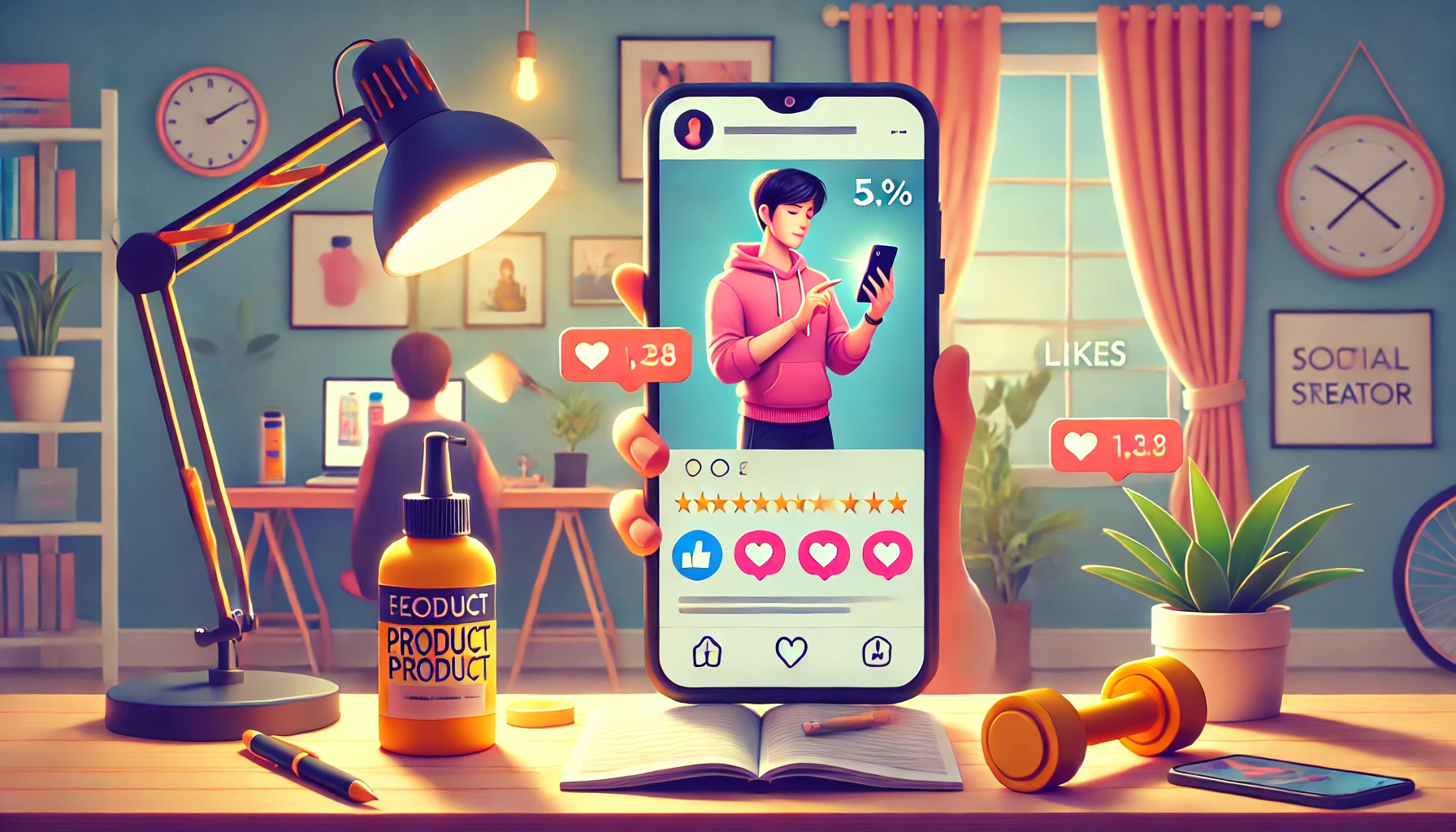How do content creators make money it’s a question that many people ask as they see influencers, bloggers, and YouTubers living comfortable lives while sharing content online.
There are countless ways content creators turn their passion into profit, and they often use a mix of different methods to grow their income streams.
Let’s break down how content creators make money and explore the most popular methods.
How Do Content Creators Make Money?

Content creators make money in various ways, and the opportunities are constantly growing.
From earning ad revenue on platforms like YouTube to partnering with brands for paid promotions, the options are endless.
Let’s take a look at the most common ways exclusive content creators can turn their creativity into cash.
1. Ad Revenue
One of the most common ways content creators make money is through ad revenue. This is especially true for YouTubers and bloggers.
When content creators post videos or blog posts, they can enable ads, and each time someone clicks on or watches those ads, they earn money.
-
YouTube: Creators can earn money through YouTube's Partner Program. Once they meet specific requirements (like having 1,000 subscribers and 4,000 watch hours), they can start monetizing their videos with ads.
-
Blogging: Blogs can display ads via platforms like Google AdSense. Creators earn money based on how many visitors click or view the ads. The more traffic they have, the more they earn.
2. Sponsorships and Brand Deals
Sponsorships are another major way content creators make money. Companies pay content creators to promote their products or services.
The size of the payment usually depends on how big the creator’s audience is.
Influencers with millions of followers might get paid thousands of dollars for a single post or video, while creators with smaller audiences may receive products or smaller payments.
-
How it works: Brands often reach out to creators who fit their target market and offer them money or free products in exchange for promoting them to their audience.
-
Example: A fitness influencer might get paid to promote a new pair of running shoes or a health supplement. The creator shares their honest review or shows how they use the product.
3. Affiliate Marketing
Affiliate marketing allows content creators to earn a commission by promoting products.
When followers purchase a product through a creator’s unique link, the creator earns a percentage of the sale.
-
How it works: Creators sign up for affiliate programs, which provide them with personalized links or promo codes. Whenever someone buys through that link, the creator makes money.
-
Example: A beauty YouTuber might share a link to a makeup product in their video description. If someone buys it using the link, the creator gets a commission.
4. Selling Products or Services
Some content creators sell their own products or services. This could include anything from merchandise to online courses or e-books.
Selling products directly to followers can be a great way for creators to earn money without relying on third-party platforms or advertisers for content creation tools.
-
How it works: Creators build their own websites or use social media channels like Shopify or Etsy to sell their goods.
-
Example: A YouTuber might design and sell branded T-shirts or a fitness coach might create an online workout program.
-
5. Crowdfunding and Donations
Crowdfunding platforms like Patreon allow fans to directly support creators.
Creators offer exclusive content creation skills or perks to their subscribers in exchange for monthly donations.
Some platforms also allow creators to collect one-time donations.
-
How it works: Fans can subscribe to a creator’s Patreon page for a monthly fee, which grants them access to special content such as behind-the-scenes footage, live Q&A sessions, or early access to videos.
-
Example: A podcast host might ask listeners to support their show on Patreon in exchange for bonus episodes or shout-outs.
Different Ways to Monetize Your Exclusive Content Creation

There are also other creative ways to monetize content, some of which might not be as common but are still highly effective.
Let’s take a look at a few extra methods content creators can use.
Boosting Social Media Presence with UseViral
One of the most effective ways to grow your following quickly is by buying followers.
We highly recommend UseViral if you’re looking to get more followers on platforms like Instagram, Twitter, or TikTok.
By purchasing followers, you can increase your social proof and attract even more engagement from your audience.
This is especially useful when you’re just starting and want to build credibility fast.
With a larger follower count, you may also get more opportunities for sponsorships and brand deals, which ultimately helps you monetize your content more efficiently.
Selling Sponsored Content
Content creators can offer to write or create content on behalf of a brand.
In this case, the brand gives them the product, and the creator writes a review or creates a piece of content about it. The brand pays the creator for their time and influence.
Subscription Services
Some content creators use platforms like Substack or OnlyFans to offer subscription-based content.
They charge their audience a monthly fee for exclusive updates, photos, or videos that are not available anywhere else.
Licensing Content
Creators can license their content to media outlets or other companies who want to use it.
If a creator’s photo, video, or blog post gets a lot of attention, they can sell the rights for others to use it in their own marketing materials.
Benefits of Making Money on Social Media
Making money on social media offers a range of benefits that go beyond just earning income.
Here’s why so many content creators choose social platforms to grow their careers and businesses.
Flexibility and Independence
One of the biggest benefits of making money on social media is the flexibility it provides.
You get to work from anywhere, whether it's at home, a coffee shop, or while traveling. Plus, you're your own boss.
You can set your own schedule and choose the type of content you create. This independence is perfect for those who want to break free from traditional 9-to-5 jobs.
Unlimited Earning Potential
Unlike regular jobs where your salary is fixed, social media allows you to scale your income as you grow your audience.
If you’re doing well with sponsored content, affiliate marketing, or product sales, your earning potential is virtually unlimited.
The more followers you gain, the more opportunities you'll have to monetize your content.
Building a Personal Brand
Making money on social media helps you establish your personal brand.
The content you create shapes how people see you, and as you build a following, you become a trusted source of information, entertainment, or inspiration.
A strong personal brand can lead to long-term opportunities, including brand partnerships, speaking engagements, or even your own product line.
Global Reach
With social media, you’re not limited to a local audience. Your user-generated content can reach people from all over the world.
This global reach opens up doors to international collaborations, sponsorships, and new markets for selling products.
It also allows creators to engage with diverse audiences and share their ideas and creativity on a larger scale.
Passive Income
While it takes time and effort to build your online presence, social media can provide a source of passive income.
Once you have a solid number of followers and your content is consistently performing well, you can earn money from ads, affiliate links, or subscriptions without actively creating new content every day.
This can lead to a more financially stable lifestyle with less day-to-day work.
Final Thoughts
In short, how do content creators make money?
They make money in a variety of ways, from ad revenue and affiliate links to selling their own products and working with brands.
The key is to find what works best for your audience and platform.
While building an online presence can take time, it’s clear that with the right approach, user-generated content creators can earn a living doing what they love.
So, if you’re thinking about becoming a creator, be ready to explore multiple revenue streams and stay consistent to succeed.
Frequently Asked Questions

How do you get paid as a content creator?
As a content creator, you can get paid in several ways.
Some of the most common methods include earning through ad revenue from social media platforms like YouTube or your blog, partnering with brands for sponsored content, and making money through affiliate marketing by promoting products.
You might also sell your own merchandise or offer subscription services where fans pay for exclusive content.
Essentially, the more ways you diversify your income, the more money you can make.
Do content creators get paid per post?
Not always. Content creators can get paid per post, but it depends on the platform and the type of content.
For example, if you’re doing sponsored content or a brand collaboration, the brand might pay you per post.
On YouTube, you can earn ad revenue based on views, which means you’re paid based on how many people watch your videos, not per individual post.
However, with platforms like Instagram, you might negotiate a flat rate for each sponsored post, especially if you have a strong following.
How are content creators so rich?
Content creators get rich because they often have multiple streams of income.
It’s not just about ad revenue - many creators sell their own products, do sponsored content, or earn through affiliate marketing.
Some even expand into online courses or membership platforms like Patreon.
The key is building a loyal audience that trusts the creator, which leads to higher engagement and better opportunities to make money.
Also, once a creator hits a certain level of success, they can earn a lot from just one deal, post, or video.
What does a content creator do?
A content creator is someone who makes and shares content to entertain, inform, or engage their audience.
This could mean creating videos, blog posts, podcasts, or social media posts.
Content creators often focus on a specific niche, like fitness, fashion, gaming, or education, and they use their platforms to share their expertise, opinions, or experiences.
Their goal is to build an audience and influence people, and many creators make money by working with brands, selling products, or earning through ads.
Ultimately, being a content creator is about creating content that resonates with others.

